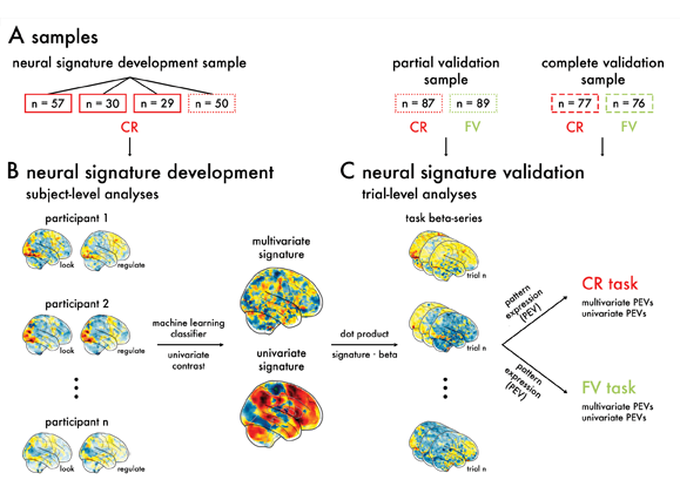Multivariate neural signatures for health neuroscience: Assessing spontaneous regulation during food choice
Abstract
Establishing links between neural systems and health can be challenging since there isn’t a one-to-one mapping between brain regions and psychological states. Building sensitive and specific predictive models of health-relevant constructs using multivariate activation patterns of brain activation is a promising new direction. We illustrate the potential of this approach by building two “neural signatures” of foo craving regulation using multivariate machine learning and, for comparison, a univariate contrast. We applied the signatures to two large validation samples of overweight adults who completed tasks measuring craving regulation ability and valuation during food choice. Across these samples, the machine learning signature was more reliable. This signature decoded craving regulation from food viewing and higher signature expression was associated with less craving. During food choice, expression of the regulation signature was stronger for unhealthy foods and inversely related to subjective value, indicating that participants engaged in craving regulation despite never being instructed to control their cravings. Neural signatures thus have the potential to measure spontaneous engagement of mental processes in the absence of explicit instruction, affording greater ecological validity. We close by discussing the opportunities and challenges of this approach, emphasizing what machine learning tools bring to the field of health neuroscience.
Citation:
Cosme, D., Zeithamova, D., Stice E., & Berkman E. T. (2019) Multivariate neural signatures for health neuroscience: Assessing spontaneous regulation during food choice. Social Cognitive and Affective Neuroscience
